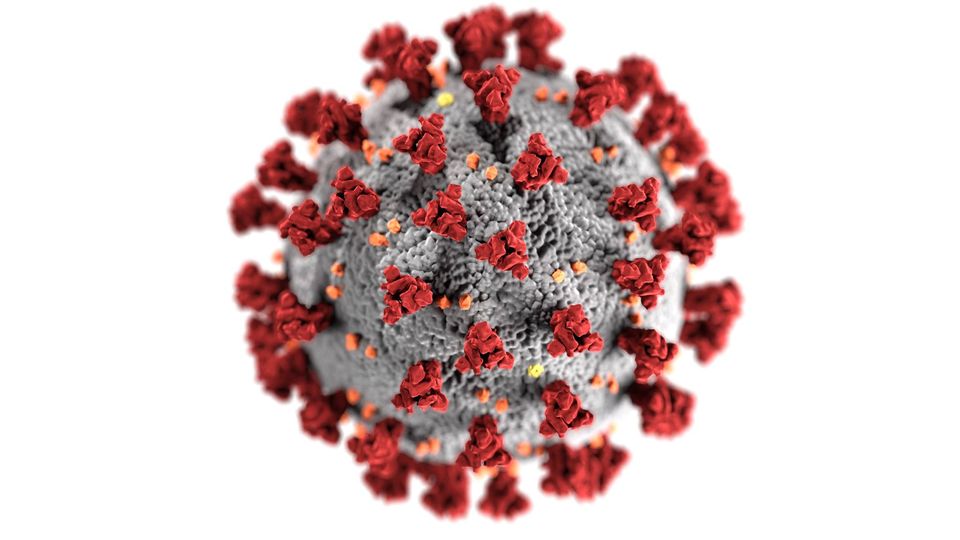Because you asked us: Covid vaccines and sterilization.
As we all know and are visually accustomed to it, the SARS-CoV-2 virus has the so-called protein spikes. These are – virtually – the jagged projections around the virus. In this way the virus attaches itself to human cells through these protein spikes and attacks them. Human immune defences are therefore directed towards these proteins and antibodies can recognise the virus using the specific protein spike to attach to it and mark it as a target for our immune cells. So this spike protein also plays a central role in vaccine development. The mRNA vaccines, for example from BioNTech/Pfizer and Moderna, contain the blueprint to make pieces of harmless protein of the specific virus. According to this blueprint, the human body itself forms the proteins (virus-like antigens), which then trigger the immune response and the formation of antibodies. Now some people come along and say that a small fragment of this protein (slight similarity in amino acid sequence) shares a similarity with another protein called syncitin-1 which is needed for the formation of the placenta. They therefore hypothesise that if we administer the vaccine it could not only trigger a defensive reaction against the SARS-CoV-2 virus, but perhaps also against the syncytin-1 protein, which is essential for placenta formation so that it could prevent a woman from becoming pregnant. This seems highly unlikely. If we can make it a little more understandable, it is like saying that all the phones with the number 7 in them are not distinguished by the telecommunications system and we call all the numbers with 7 in them every time we want to call someone. The human body is made with such a laxity and our immune system is so smart that we think it can recognize even that small difference. Plus, let’s get to the science part there was no evidence of infertility in vaccinated women and in the clinical trials for the vaccines. Although when the studies were done they did not include pregnant women there was a percentage who became pregnant. And if we assume that this is true then all women who get coronavirus since there is this similarity to syncitin-1 will develop antibodies against the spike protein of coronavirus – as happens after a vaccination and a very high rate of abortion and pregnancy complications should be expected. But this has not happened so far.
So therefore if a coronavirus vaccination would cause sterilisation on the grounds as published, then a coronavirus infection should do even more so. In the case of infection, the patient’s antigen load from the coronavirus protein and therefore the possible formation of antibodies is considerably higher and more incalculable than in the case of vaccination ( Schleußner ,Jena Univercity). The Robert Koch Institute also points out that in the pandemic caused by the Sars-CoV-1 virus in 2002/2003, no infertility was observed in women after an infection and the observation period is now almost 20 years. Researcher Udo Markert, who has studied the placenta extensively as part of his research, says that it is falsely claimed that Covid-19 vaccines could cause infertility due to a very short amino acid sequence in the SARS-CoV-2 virus protein spike, which is similar to the placental protein Syncytin-1. This sequence is too short – four common amino acids – to be able to cause autoimmunity. We see similar vaccine rumours over time, such as the WHO wanting to sterilise women in Kenya by vaccinating them with the pregnancy hormone beta-hCG added to a tetanus vaccine, and in Africa the rumour that HPV vaccination causes infertility. For information, in the treatment of autoimmune diseases such as multiple sclerosis, therapeutic antibodies that are much more similar to the placental protein already appear to be used. Many experiments have shown that these antibodies had no effect on normal placental development.
We hope we have answered your questions. We try to inform ourselves from authoritative sources and make them understandable for you. Medicine is a science that is constantly changing by moving forward and learning. At the moment we know this data based on research and we bring it to you.
Because you asked us: Covid vaccines and sterilization.

